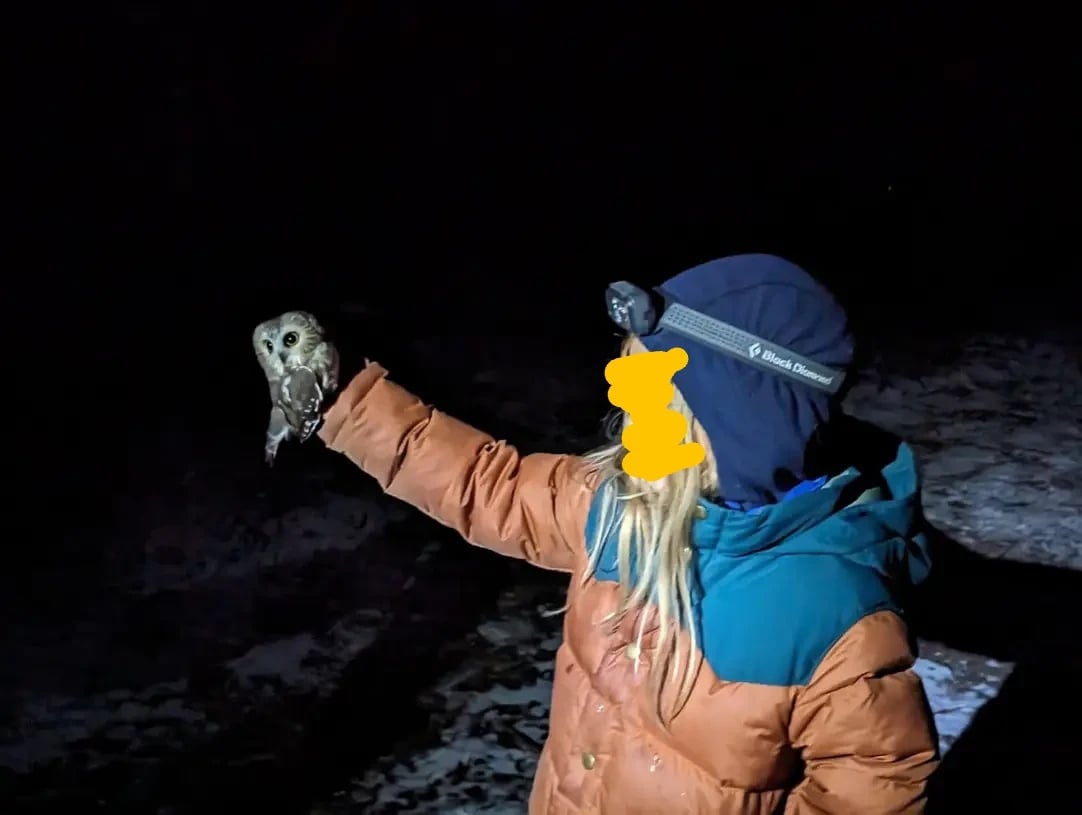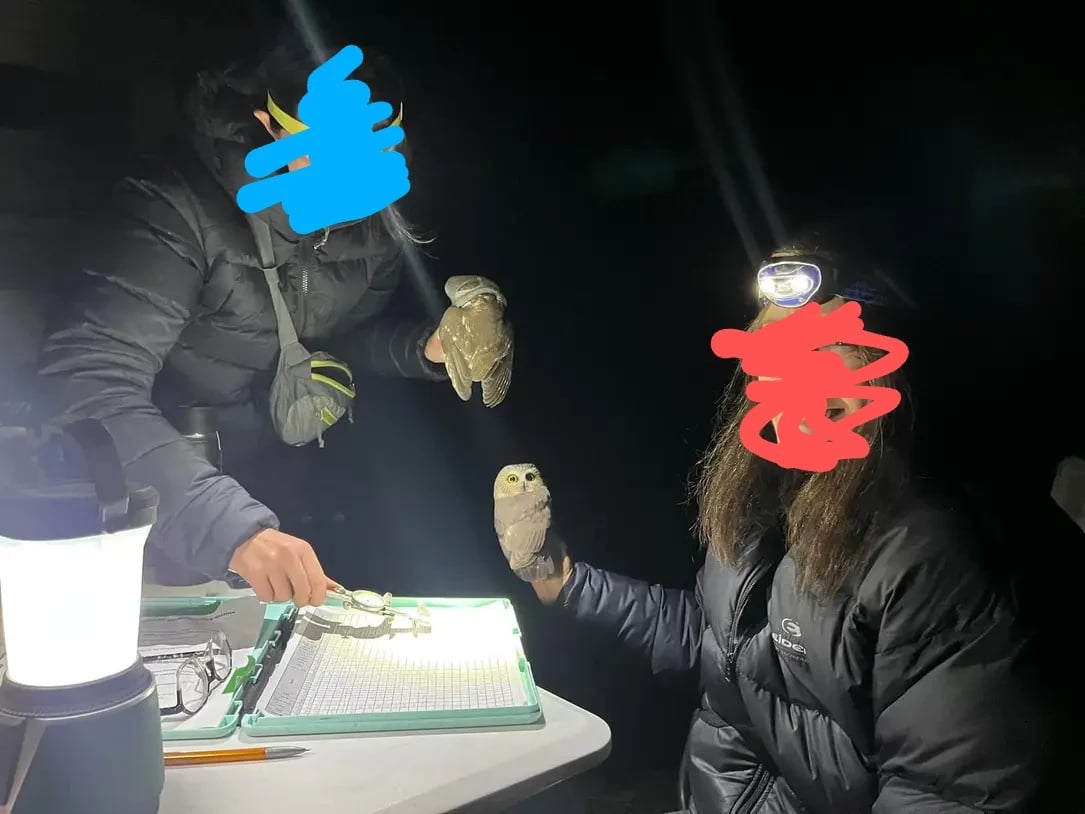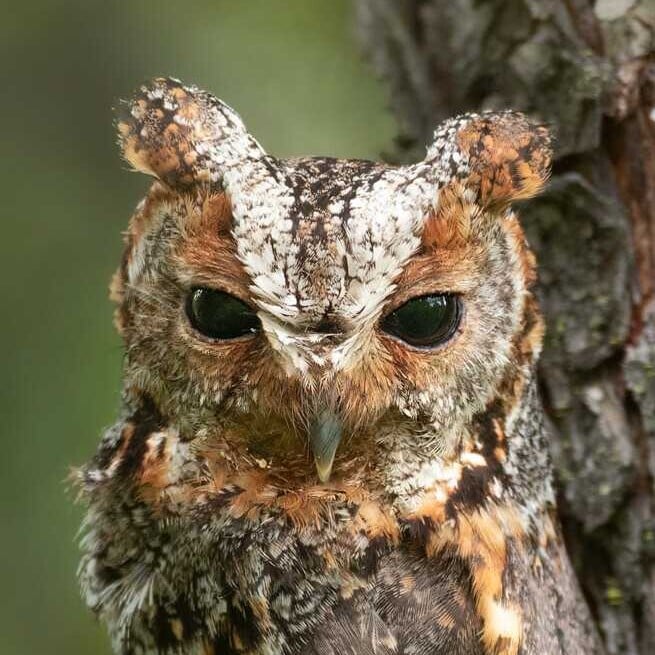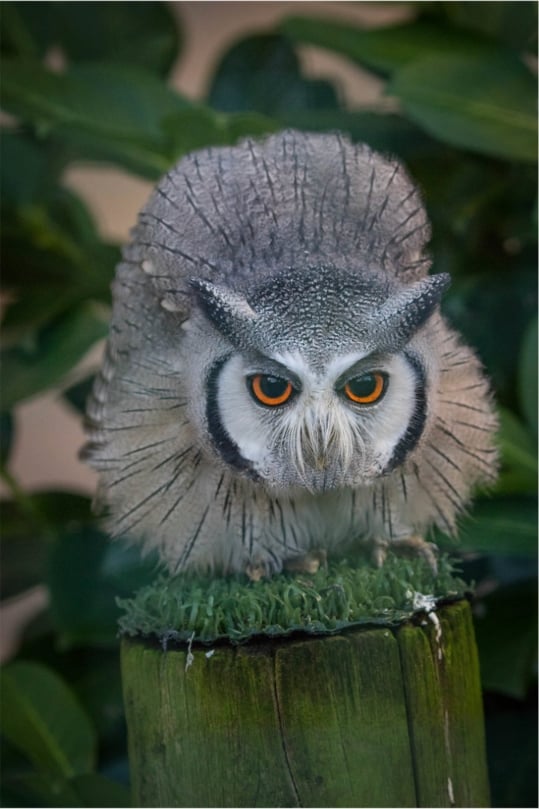Saw Whet Owl getting a shiny new bracelet.
At first glance I actually thought you were cutting that owls foot off. Worth noting I know nothing about birds or owls.
It does look that way, but it is done very safely and there are no cutting edges involved.
I collected a bunch of pics to show you, but I can’t seem to upload them right now. Here is a video that shows the equipment and process. It’s a long video, but the banding is the first 5 minutes. After that it goes into the measurements they take and using the UV light to age the birds and how they check male vs female, so watch it until you get bored!
Im looking forward to finding time to watch the rest of that link but those first ~8ish minutes are very interesting.
Are these wild birds captured for surveying or captive birds? I’m just imagining a wild owl experiencing its own version of alien abduction via can.
Edit: do you even use the can technique for banding on its own?
I believe it is mostly done on wild birds, though there does seem to be some use for it on captive animals potentially as well.
By providing a tracking number to each bird caught, scientists can then see what happens to each one and work with that data. They can see the path of migration, determine how long they spend at each stop or how many stops they make, how long they live, and much more.
There are colored bands available as well, so individuals can be quickly identified. This is one possible use I can think of in captivity, probably not so much with raptors since they are solitary animals, but with other species.
There are other types of bands available for other birds types. Geese have feet that will be under water the majority of their observation time, so they have neck bands. Other larger raptors can also have wing tags. I saw some of these on some migrating vultures the other week.



Everything I’ve looked at has the bird in the handlers hand during banding. They probably want to have maximum control while using the pliers so the birds makes less uncontrolled movements to prevent injury.
For banding, the goal seems to be to release the birds quickly with the least disturbed to them while still being safe, so I don’t think the an apparatus is used too much. Most things seem to be done in the field rather than inside like this. I think the Saw Whet Owl being so small may let them do this so they can work with multiple birds in quick succession. The Barn Owl and Great Horned Owl videos I watched seems to make it look like a 2 person job for some of the larger owls.
They do wrap up owls often too weigh them so they sit still on the scale where having a hold on them would impact the measurement.

I haven’t banded myself, it looks like you need a federal license. I’m going to an event this weekend that will hopefully have some owl banding, so I can ask them any questions I might not be able to find answers to.
Thank you for that very detailed response. That’s cool as fuck. This isn’t my usual point of interest but I like to dip into a bit of everything so I really enjoyed that read.
You seem to be well versed in the subject, I respect that.
My pleasure. I’m glad I could help you find that new spark of interest. Some unknown person’s post in Reddit one day got me to this point too.
I’m not an expert, just someone who loves animals and likes to research. Doing this for a few months now has really renewed my interest in working with animals though, so who knows where this will take me eventually…


How do they catch them for banding?
In this post there is a bit about catching them with nets. I think this is the same project, but I might be mistaken
Thank you for linking this!
Mist nets are typically made of nylon or polyester mesh suspended between two poles, resembling a volleyball net. When properly deployed in the correct habitat, the nets are virtually invisible. Mist nets have shelves created by horizontally strung lines that create a loose, baggy pocket. When a bird or bat hits the net, it falls into this pocket, where it becomes tangled.




